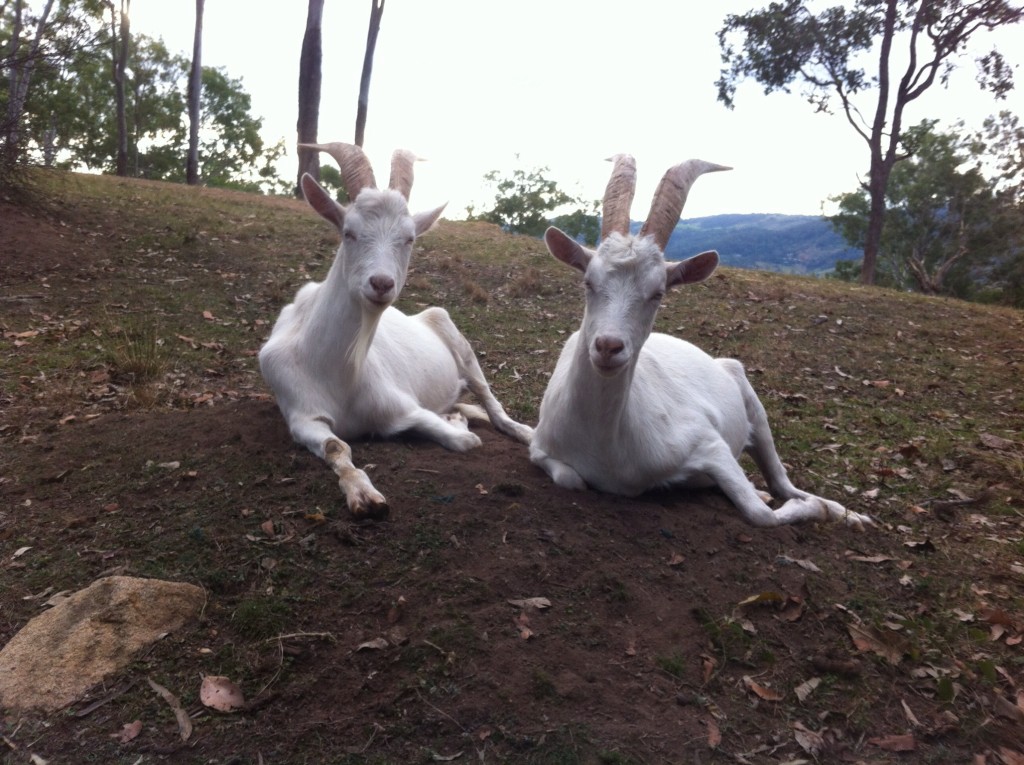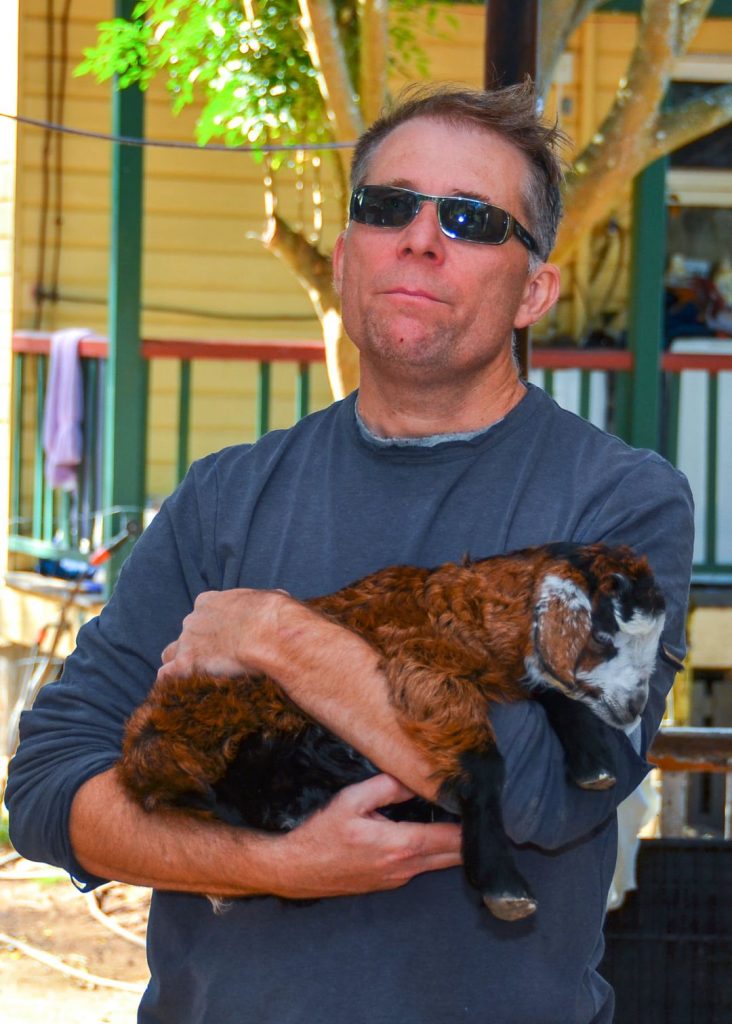Goat farming in Australia
Goat farming in Australia is a smaller industry that cattle or sheep farming, however Australia is the largest exporter of goat meat in the world. Goats are farmed for their meat, fleece and milk, and are also exported live from Australia suffering harrowing journeys in the live export industry.
Many people are surprised that animals in the agricultural and food industry are not afforded the same laws that protect our companion animals. Early weaning of kids so that goat mother's milk can be used for human consumption is upsetting for dam and kid. De-horning or "disbudding' is often carried out between 3 and 7 days and is regularly done without pain killers. Intensive farming can also prohibit goats from expressing natural behaviours and cause stress.
In Australia, Cashmere goats bred for their fleece are subject to the stress and injuries caused by shearing, which is most often during winter leaving them vulnerable to hypothermia. And male goats are often castrated without pain relief or anaesthetic.
At sanctuary we have ample opportunities to get to know goats. Goats are great big bundles of fun. Unlike other ruminants, which need to eat for between six and ten hours a day, goats can get all of their nutrition in just four hours and reserve the rest of the day for fun and games.
Joshua was rescued from a free-range organic dairy farm. When he arrived at the sanctuary he was infested with lice, ticks and fleas. Boy goats born to the dairy industry are destroyed when they're six days old, so we rescued him on his fifth day.

Just like dairy cows, mother goats are miked for most of the year, often while pregnant. This can result in weak and poorly kids prone to metabolic issues. Sadly, because of their weakened state, some dairy goat babies do not survive even after they have been rescued and arrive at sanctuary.
Rescued sanctuary goats Henry, Richard and James were being transported for live export when they escaped. By the time they were caught, they had luckily missed the ship and came to love at sanctuary instead. Goats are the third largest live export market out of Australia.

Lucy was born to a wild goat herd, but when just 16 hours old her herd wandered onto a farmers property. Seeing an opportunity, the farmer loaded them onto a truck. Sensing danger, Lucy's mum hid her, but never came back after being captured.
After three days and starving, Lucy arrived bleating at the house next door. By then malnourished and very cold, when she arrived at sanctuary we placed her by the fire and gave her some nutritious food. Soon she was bouncing around and breaking our hearts!

Baby goats are often victims of the food industry even when they are born wild. These clever, intelligent and playful creatures are a delight to be around and to care for. They are mischievous, adventurous and cunning and keep sanctuary carers constantly on our toes. And we wouldn't have it any other way.

